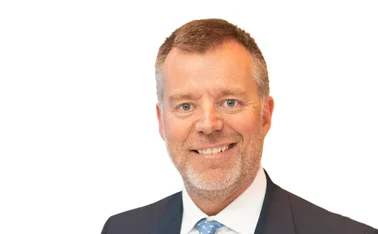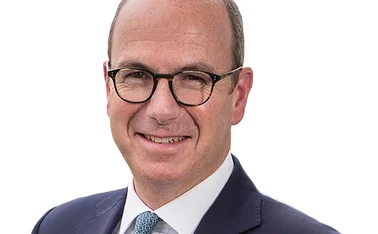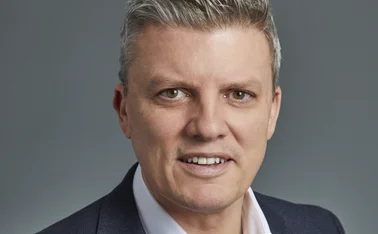
Intelligence: What does the future hold for ESG chief officers?

With the growing importance of environmental, social and governance issues, companies are starting to recruit people to senior executive positions to oversee their strategies. Pamela Kokoszka investigates if the role of chief ESG officer is here to stay, or – if like the role of chief digital officers recruited in the 2010s – will be absorbed elsewhere once ESG becomes more embedded within their employers.
The role of an environmental, social and governance officer is “broad” and goes “across multiple key dimensions” according to Sylvain Johansson, senior partner at McKinsey & Company. Johansson explains that it spreads across orchestrating the reduction of insurers’ own emissions and promoting the internal ESG agenda, to managing the reporting and disclosure of all ESG-related commitments.
The role also involves interacting with external stakeholders to ensure maximum recognition for the company’s efforts as well as stimulating the investment side and the underwriting side of the business to define and implement their own priorities.
Johansson says: “This typically represents a large amount of activities. One of the key value-adds of sustainability heads is to process and prioritise all competing demands, and help the organisation identify the real game changers, where the insurer can have material impact.”
One of the key value-adds of sustainability heads is to process and prioritise all competing demands, and help the organisation identify the real game changers, where the insurer can have material impact.”
Sylvain Johansson
In the past 12 months, there have been a raft of chief ESG officer or sustainability director appointments. These include Constance Hunter, as executive vice-president, global head of strategy & ESG at AIG; Victor Riega as head of sustainability at Fidelis; Amir Sethu as head of sustainability & ESG at MS Amlin; and Suzanne Scatliffe as global sustainability director for Axa XL.
The trend has been driven by increasing focus on ESG according to James Whitaker, partner at Mayer Brown, particularly since the United Nations Climate Change Conference COP26 in Glasgow, Scotland in November 2021.
Whitaker adds: “A noteworthy feature of these appointments is not only the stellar expertise and experience of the appointees, but also the seniority within the organisation of the particular role. This reflects a broad, and growing, recognition that ESG issues are – or should be – an integral element of the organisation’s business, and should constitute board-level considerations.
A noteworthy feature of these appointments is not only the stellar expertise and experience of the appointees, but the seniority within the organisation of the particular role. This reflects a broad, and growing, recognition that ESG issues… should constitute board-level considerations.”
James Whittaker
“Expectations of the insurance sector continue to rise, and the essential need to align sustainability strategies and goals, whether that is within the business itself, in the investment portfolio and approach the organisation adopts, and the underwriting philosophy, is business-critical, not least because of the keen scrutiny the sector is under.”
The industry has also launched a number of initiatives aimed at tackling climate change, with goals around aligning underwriting and investment portfolios to the Paris Agreement. This includes UN-convened Net-Zero Insurance Alliance committing to transition member firms insurance and reinsurance portfolios to Net Zero by 2050, and the Association of British Insurers’ Climate Change Roadmap, which set out goals to free up one third of the investment needed in order to meet the UK’s Net Zero target.
Complexity
Sustainability officer roles are not a new addition to the board for many of the larger insurers, but for smaller businesses, that are only now starting to recruit head of ESG, these roles tend to be less complex than for larger businesses.
Greg Lowe, director in the sustainable finance team at Deloitte, explains: “Where larger insurers are concerned, there are now often regional leads given the complexity and scope of the topic. For regional leads or sustainability leads at smaller insurers, the roles are typically less technically complex. Many of those are recruited from operational sustainability roles, with a focus on energy efficiency and reporting.
“Beyond the roles within a sustainability function, for corporate and speciality insurers in particular, many risk functions are appointing roles specific to climate. Climate isn’t always the full-time focus of the role, but it’s becoming more commonplace for it to be a full-time role.”
Axa XL, for example, has a sustainability team in place for “about 10 years” according to CEO for UK and Lloyd’s at the firm Sean McGovern. McGovern explains: “We are really focused on how we – as a business – try to ensure that we act responsibly and are sensitive to the ESG considerations. This is not a new journey for us, but our thinking has evolved and matured as time has gone by.”
He adds that at Axa XL sustainability is a “core premise” of the business, and says: “We have a global sustainability team that drives our sustainability agenda. From an ESG point of view, and within the UK, we have a small ESG team, which is really there to pull it all together at country level, but is also particularly focused around how we bring value to our clients in helping them with their own ESG practice.”
Some larger brokers also split their ESG and sustainability roles. Richard Dudley, global head of climate strategy at Aon, looks specifically at climate change and at how the industry should be supporting decarbonisation and increasing resilience to the existing effects of climate change, as well as how to develop new products and services.
Leslie Follmer, head of investor relations and ESG at Aon, is globally responsible for how Aon “spends its money, for example, the cost of how we run our operations, the carbon footprint of our real estate, the travel and the entertainment policy we have for all our employees around the world, and how we manage our supply chain”, but also has an eye on ESG on commercial side and is “responsible for looking at ESG more broadly”, according to Dudley. Dudley explains: “It sounds a bit of a mish-mash, but it actually works quite well in a large organisation because there are so many aspects of this.”
For the rest of the industry Roger Jackson, UK partner and insurance ESG leader at KPMG, says he has not seen many firms “where they’ve got a sustainability head and chief ESG officer”. He explains that those that focus more on sustainability tend to have head of sustainability roles and those more focused on S and G aspects of ESG have chief ESG officers, adding that head of sustainability often is there to signal to stakeholders “that sustainability is a big issue for them”.
For example, LV, Marsh and Zurich only have heads of sustainability, Allianz has a chief sustainability officer and Ageas has a head of ESG (see box, p39). Other companies, including Aviva, Gallagher or Markerstudy for example, do not have a dedicated ESG/sustainability officer and instead have people whose roles include responsibility for company’s sustainability agenda.
Different backgrounds
In terms of background for these roles, brokers and insurers take different approaches.
Dudley says: “If you look at Marsh it has got people in similar roles to me who have also come from [within] the business. If you look at EY, its global head of sustainability used to run its UK operations, for example.
He expects that people with sustainability roles at “major insurance companies like Allianz or Aviva” to have a sustainability background or corporate social responsibility background “because they need to consider every aspect of how that company runs, and not just how it interacts with its clients”.
However, Jackson has seen a mix of people from within the business, and with sustainability backgrounds appointed into the role at insurance companies.
He says: “It depends where the focus of the firm is. If the focus is more on sustainability, you get head of sustainability and that tends to be someone with some expertise in that role. But they still need that leadership quality as well.”
It depends where the focus of the firm is. If the focus is more on sustainability, you get head of sustainability and that tends to be someone with some expertise in that role. But they still need that leadership quality as well.”
Roger Jackson
Where the role is more ESG focused, it tends to be filled with people with business background or from within organisation.
This includes Allianz, which hired its ESG experts from within the organisation, according to Julie Harrison, chief HR officer at Allianz Holdings.
Harrison says: “We take subject matter experts and support the development of their sustainability expertise, and we have found this approach works well. It means that ESG can be integrated into existing business practices, making it more successful.”
Group head of sustainability at Zurich, Linda Freiner, has come from a business background “having worked in a typically corporate roles in both finance and consulting”. Prior to taking on the role, Freiner took a fellowship with World Economic Forum to try and understand “the wider role of business in society”
She says: “People that you see in these roles today, they often come with this expertise, having worked in the company for a long time, knowing the company quite well. And therefore they can see in terms of how ESG integrates, where is it, how we run this, and how we run a change management process because it’s really about transforming the company.
“There’s a next generation coming up who have actually studied sustainability in business school and who are looking at this topic specifically from different angles that are also coming into the workforce. But the sustainability leaders that you see today, they come with the stakeholder engagement, the knowledge of the company, and really wanting to drive change experience.”
The importance of resources
When it comes to the resources that heads of ESG are equipped with, this also varies from company to company.
According to Johansson, some have established dedicated sustainability or ESG teams, with two to three experienced managers from the business, while “others are leaner and see the sustainability head working more transversally with existing colleagues/resources across the organisation”.
For BMS Group, there are many facets to ESG and a number of areas within the company are already focused on meeting set targets. BMS’ group head of environmental and social responsibility Neil Prior, explains: “We have, for example, embedded the governance framework in the business for many years. Functions such as compliance, human resources, diversity and inclusion, training and development, and staff wellbeing are well advanced. However, there is always more work to be done.
“Companies must invest in the knowledge and skills required to effectively execute the management of change. For this to be done within a planned time frame, resources, which are both human and financial must be made available on the scale needed to fulfil ambitions.”
At Axa XL, the head of sustainability and head of ESG have dedicated teams to help them achieve their goals.
McGovern says: “Suzanne [Scatliffe, global sustainability director] has a team of six people and she’s given a budget. The sustainability team oversee our charitable giving and working with local charity committees. We try to coordinate that as best we can to ensure that our activity is very much aligned with our sustainability strategy. We look to partner with charities that support the pillars of our sustainability strategy.
“On the ESG side, it’s a team of three people supported by an established ESG Forum, which is there to drive the ESG strategy and open to all colleagues across the organisation who are keen to play a part in driving an ESG agenda. It’s really tapping into the energy and enthusiasm of that group.
“It’s a small team of resources and then [it’s really about] setting it up in the organisation to make this an organisational priority rather than just the priority of two or three people.”
Freiner also expresses that a sustainability team should not consist of 30 people and instead should “stay small and agile”. She explains: “We assign the responsibilities depending on the role that we have. That includes strategy, supporting implementation, reporting and stakeholder engagement. We need to hire people in the functions in the business where work is happening. The danger, if you have big sustainability functions, is that other functions and the business will think ‘they do sustainability’, so it never gets fully integrated into the company.”
In the long term
Insurers are confident that the role of head of ESG or sustainability is here to stay driven by customer and stakeholder demand, unlike the phenomenon we have seen with the chief data officers back in the 2010s.
Back then, insurers appointed CDOs to help bring fresh perspective to digital propositions. Many predicted from the very beginning that the role would not feature permanently on insurers boards, but with the hope for digital to become a part of a company’s DNA. By 2018, the industry saw a number of CDOs leave the industry without being replaced.
According to Deborah Newberry, director of corporate affairs at Kennedys, CDOs were appointed to improve the company’s operations in order to improve the experience that customers had before digital became part of business strategy.
Newberry says: “We might see ESG professionals being absorbed into companies’ operations over time because ESG will become part of the culture in the same way that CDOs is now part of companies’ strategy.” However, she adds that – for now – the role is here to stay as there is “still a huge demand for ESG professionals”.
There is also “much still to do” around ESG, and, therefore, for the next three to five years there will need to be “visible leadership dedicated to the sustainability/ESG topic”.
Johansson adds: “It might be that in the ‘ideal’ future, sustainability is fully embedded across all leadership roles with clear expectations and key performance indicators so that a dedicated sustainability head becomes redundant, but we are far from that. Especially because there is still so much ambiguity on certain topics, for example how to define and measure Net Zero in underwriting, so we will still see a lot of shaping in insurance sustainability in the years to come.”
To Jackson, the focus on digital is different to focus on ESG because of “external stakeholder push”, and he says: “There is definitely more longevity in the ESG. The CDOs came about because we suddenly had all these tools and software available. We needed to think about how to look at data. There was a big drive to use that new technology and being more efficient. A lot of that still continues, but it is not such an issue as for ESG.”
Jackson points out that CDOs still exist; they just do not get the same focus that they did 10 years ago. But whether the role of chief ESG officer is here to stay or not also depends on where and how a firm “articulates their purpose” and what emphasis they put on ESG, according to Jackson. He explains: “If they have a very strong purpose in relation to this balance between profitability and social purpose, and they’re very keen have those two pillars, then you’re more likely to see it here to stay because of external pressures from stakeholders, which we see ramping up and increasing.”
He reveals that the two pillars look at issues ranging from “finance profitability, revenue perspective to social purpose and climate sustainability”, and says: “You see that in some of the financial accounts now. We’re starting to see increased narrative around ESG and that will only continue. My hope personally, is that it is here to stay because it’s a really good thing for business.”
However, he expects that for some smaller firms, these roles will not be priority, and adds: “Particularly for some small business, their focus is on just making profit sustainable – surviving basically. For those it [a ESG chief officer role] is not going to be a priority, and they’re going to be trying to do it within the business.”
Industry figures with either ESG or sustainability focused job titles
- Ageas – Julie Lane, head of ESG
- AIG – Constance Hunter, executive vice-president and global head of strategy
and ESG - Allianz – Line Hestvik, chief sustainability officer
- Aon – Richard Dudley, global head of climate strategy, and Leslie Follmer, head
of investor relations and ESG - Axa XL – Suzanne Scatliffe as global sustainability director, and Katie Lennon, head of ESG, UK and Lloyd’s
- Gallagher – Francesca Campbell, head of ESG
- LV – Andrew Waddelove, head of sustainability
- Marsh – Amy Barnes, head of sustainability and climate change strategy
- MS Amlin – Amir Sethu, head of sustainability and ESG
- QBE – Kate Lyons, group head of sustainability
- Zurich – Linda Freiner, group head of sustainability, and and John Keppel, UK chief sustainability officer
Only users who have a paid subscription or are part of a corporate subscription are able to print or copy content.
To access these options, along with all other subscription benefits, please contact info@postonline.co.uk or view our subscription options here: http://subscriptions.postonline.co.uk/subscribe
You are currently unable to print this content. Please contact info@postonline.co.uk to find out more.
You are currently unable to copy this content. Please contact info@postonline.co.uk to find out more.
Copyright Infopro Digital Limited. All rights reserved.
As outlined in our terms and conditions, https://www.infopro-digital.com/terms-and-conditions/subscriptions/ (point 2.4), printing is limited to a single copy.
If you would like to purchase additional rights please email info@postonline.co.uk
Copyright Infopro Digital Limited. All rights reserved.
You may share this content using our article tools. As outlined in our terms and conditions, https://www.infopro-digital.com/terms-and-conditions/subscriptions/ (clause 2.4), an Authorised User may only make one copy of the materials for their own personal use. You must also comply with the restrictions in clause 2.5.
If you would like to purchase additional rights please email info@postonline.co.uk








